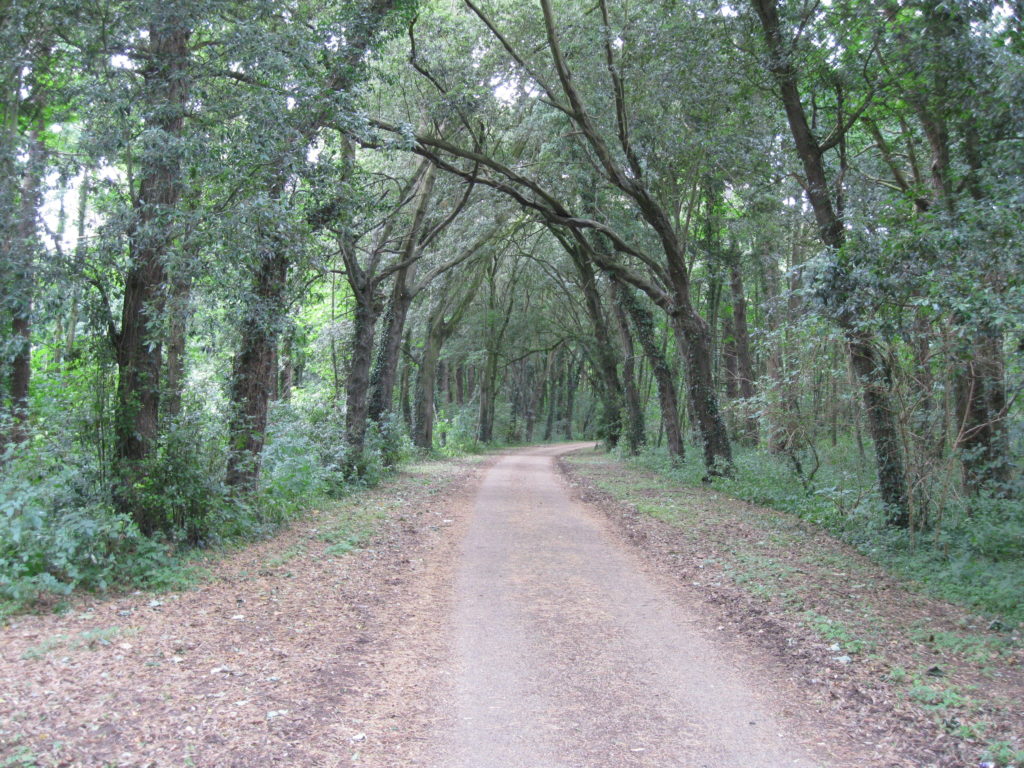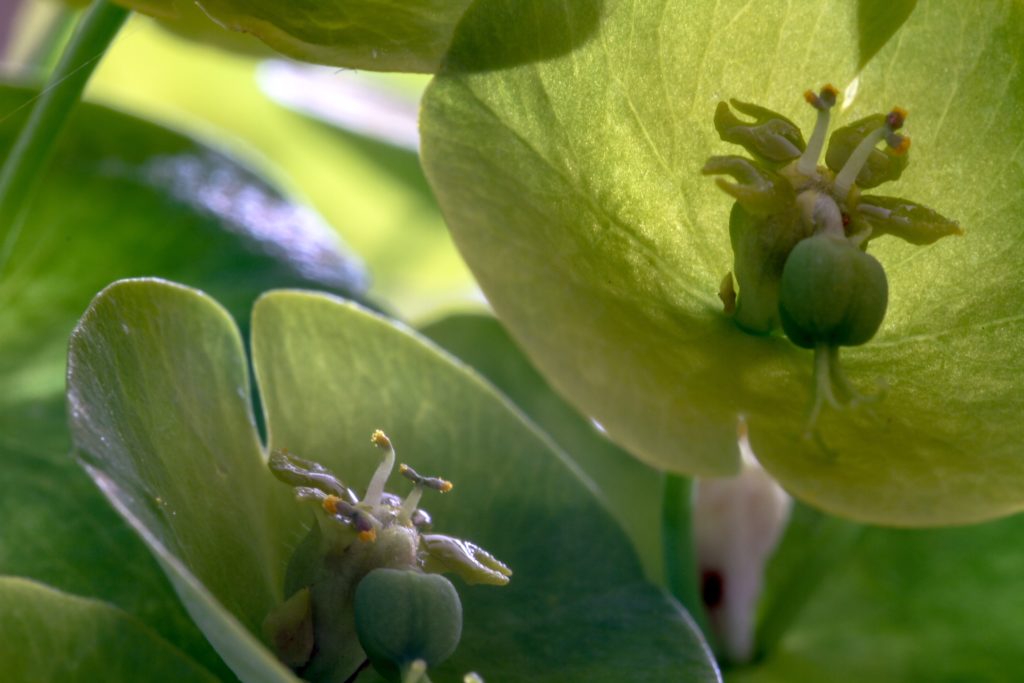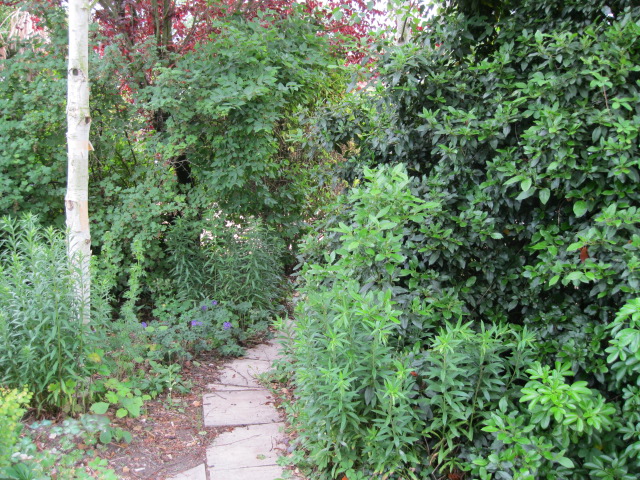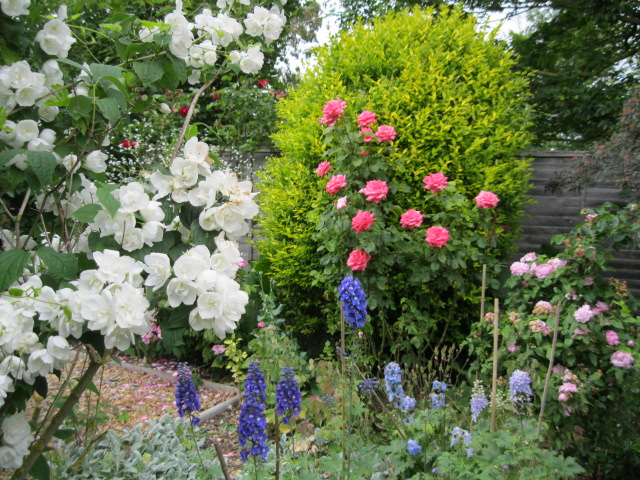Page Contents
Diploma in Body Psychotherapy
Interviews for the 2025 intake will start in December 2024. After that the next batches of interviews will be on Friday 23rd May 2025 and Friday 20th June. The training is all in person. We accept a maximum of 12 people each year.
We interview until places are filled and then start a waiting list. The final date for an application is 18th July 2025. We accept applications for the waiting list when the 12 places are filled.
We offer training for the Diploma in Body Psychotherapy and registration with the UK Council for Psychotherapy (UKCP).

The Journey
Body psychotherapy is also known as Somatic Psychotherapy especially in the USA. The training is a development of the person, which invites becoming a fuller human being. The journey through the training requires curiosity and a commitment to delving deeply inside oneself. This has to be coupled with the emotional robustness to sustain the exploration. The training is best suited to those with a sense of vocation and desire to serve others. Being able to work competently and successfully as a body psychotherapist is dependent on the level of emotional maturity that a student develops during the training. Emotional development takes time and each student’s journey and the time that they need will be different. The fruits of the journey are having a sense of belonging, feeling a connection with others, and the environment.
Open Events to find out more
The next Open Events will on Friday 11th July 2025 4.00 p.m. to 6.00 p.m. to find out about training.
Cost: £10.00. Please contact us to book.
There are 12 places.
Diploma in
Body Psychotherapy
The information below is specific to the Diploma in Body Psychotherapy for those without an existing registration with UKCP.
The Training Overview
| CORE TRAINING Modules | Hours | Certificates awarded and key milestones | |
| 1 | Body Psychotherapy 1 Foundation Biodynamic Massage Emotional Anatomy and Physiology | 117 (9 weekends) 130 (10 week.ends) 48 (8 days -Sat/Sun) TOTAL 295 | CERTIFICATE IN BIODYNAMIC MASSAGE On successful Completion of Biodynamic Massage and Emotional Anatomy and Physiology Start Biodynamic Massage Practice |
| 2 | Body Psychotherapy 2 Biodynamic Massage/ Body psychotherapy Theory and Clinical Application | 117 (9 weekends) 54 (9 Fridays) 36 (9 Friday afternoons) 6 Research (1 day) TOTAL 219 | |
| 3 | Body Psychotherapy 3 Biodynamic Massage/ body psychotherapy Theory and Clinical Application Diversity and Inclusivity | 117 (9 weekends) 54 (9 Fridays) 36 (9 Friday afternoons) 12 (1 weekend) TOTAL 207 | Apply to start BP Practice |
| 4 | Body psychotherapy 4 | 130 (10 weekends) 6 Research (1 day) 6 Mental Health Awareness (1 day) TOTAL 142 | CERTIFICATE OF COMPLETION CORE TRAINING |
| CLINICAL PHASE 1 | |||
| 5 | Contemplative Supervision BP research | 54 (9 days – Sat/Sun) 6 (1 day) TOTAL 60 | CERTIFICATE OF COMPLETION CLINICAL PHASE 1 On successful completion of all criteria including one case study |
| CLINICAL PHASE 2 | |||
| 6 | Contemplative Supervision | 54 (9 days – Sat/Sun) TOTAL 54 | DIPLOMA IN BODY PSYCHOTHERAPY On successful completion of all criteria and final interview with External Examiner and panel APPLY FOR REGISTRATION WITH UKCP |
The three aspects of training
Throughout the training there are three aspects to it, which are present in all of the courses. These are the teaching of Skills and Techniques, Therapeutic Presence and Theory. As techniques are honed they become skills and are the vehicles in which relationships are explored. The ground of the therapeutic relationship is Presence. Cultivating this develops the capacity to be with the client, and to listen deeply. It also includes holding a wider perspective and context. Theory provides the conceptual framework. Gradually, skills, presence, and theory become integrated in the student and in the therapeutic context.
It is possible to pace training to the student’s own circumstances and so fewer modules may be taken than the year requirements.
The First Year
The first year develops body awareness and embodiment. Self regulation and healing is fostered through coming into relationship with the “essential self” and gaining a sense of restrictions which hinder self regulation. The use of skilful touch and the recognition of somatic resonance is explored and how to use these in the psychotherapeutic relationship. Practice sessions are done mostly in pairs followed by reflexive exploration on self as client and self as therapist. Successful completion of the Foundation Biodynamic Massage and Emotional Anatomy and Physiology modules leads to the Certificate in Foundation Biodynamic Massage and entitles the holder to join the Association of Biodynamic Massage Therapists. See AHBMT This association holds a register of practitioners.
First year modules require two to five days per month, (usually at weekends) depending on numbers of modules taken.
The Second Year
In the second year the student begins to build a biodynamic massage practice and to work under supervision with clients. The second year deepens training from the first year and skills are learned to anchor contact with the essential self more securely and to take this relationship with oneself into relationship with another. A variety of physical awareness practices are taught for students to use to further embodied presence and to foster self care in daily life. The study of biodynamic massage in the service of psychotherapy is continued. To this is added the study of vegetotherapy, a form of “free association” of the body. Different levels of therapeutic presence are also explored. The theory and clinical application of different psychotherapies and political, social, cultural and spiritual issues surrounding the practice of psychotherapy are discussed. Practice sessions are done in threes and fours, followed by reflexive inquiry with the focus more on self as psychotherapist. These modules involve 9 weekends per year and some additional weekend days and Friday evenings spread over 10 months.
The Third Year
The third year moves from a relative focus more on intrapersonal relating to one of more interpersonal relating. The psychotherapeutic relationship is explored in terms of resonance and reaction (somatic transference and somatic countertransference). Existential thinking on relationship is also studied. Regressive and imaginal work is explored, and psychotherapeutic themes such as working with sexual issues, aggression and negativity, and birth process are examined. The study of vegetotherapy is continued and deepened. Skills are also taught drawn from recent developments in gestalt psychotherapy and used as vehicles for exploration. Psychotherapy theory and the clinical application of different psychotherapies is continued, but with emphasis on the different schools of Body Psychotherapy. The time commitment is as for second year: 9 weekends per year and some additional weekend days and Friday evenings spread over 10 months.
The Fourth Year
The fourth year consolidates the learning of previous years and prepares the student for work with clients. A large part of the training year is spent with students working in small groups, giving sessions and receiving live supervision. A form of contemplative self and peer supervision is formally introduced and becomes honed to reflect on psychotherapeutic process. There is opportunity to revisit some of the topics from previous years and within seminars the clinical application of Body Psychotherapy is discussed using in particular the theory of Character Strategy (Reich, Lowen, Brennan, Kurtz). During this year students apply to start their clinical work.
The Clinical Phase
The clinical phase requires a minimum of two years (Years 5 and 6). During this phase the student becomes a “trainee”. Trainees are required to deliver 450 hours of client work, have group and individual supervision, write two case studies and a final dissertation.
FIRST YEAR TRAINING DATES
Biodynamic Massage 1
Dates:
2024: September 7/8; October 13/14; November 9/10; December 7/8;
2025: January 11/12; February 8/9; March 8/9; April 12/13; May 10/11; June 7/8
TIME: 10.00 a.m. – 6.00 p.m.
COST: £2403.00 payable as a deposit of £267.00 and 8 monthly payments of £267.00.
Emotional Anatomy and Physiology
Dates:
2024: September 28: October 26; November 23/24; December – reading month;
2025: January 25; February 22; March 29; April 26;
TIME: 10.00 a.m. – 5.30 p.m.
COST: £990.00 payable as a deposit of £110.00 and 8 monthly payments of £110.00.
Body Psychotherapy 1
Dates:
2024 – Oct 5/6, Nov 2/3, Nov 30/Dec 1,
2025 – Jan 4/5, Feb 1/2, March 1/2, April 5/6, May 31/June 1,
9 weekends
TIMES: 10.00 a.m. to 5.30 p.m.
COST: £2205.00 payable as a deposit of £245.00 and 8 monthly payments of £245.00
TRAINER: Gill Westland

Cambridge Body Psychotherapy Training Overview
Cambridge Body Psychotherapy Centre (CBPC) trains individuals to offer individual, in depth relational Body Psychotherapy with adults. We bring together key body psychotherapy skills and theory into a comprehensive framework equipping the future body psychotherapist to work with people currently coming to the attention of body psychotherapists. Our graduates are equipped to work with a broad range of people and to offer exploration of personal experiences that can be transformative in itself.
We see the training as a “development of the person” and this requires adequate time for personal maturation. We prepare students for accreditation as a body psychotherapist and then registration with the U.K. Council for Psychotherapy (UKCP). Cambridge Body Psychotherapy Centre is a full training and accrediting organisational member of UKCP. We are also active within the European Association for Body Psychotherapy.
The Training Structure
The training is run in Cambridge and our students come from all over the UK and training events are clustered around weekends to make it accessible nationally. The Cambridge tourist office is a useful resource www.visitcambridge.org elephone 01223 322640
Weekends are non-residential and details of local accommodation are available.

Cambridge Body Psychotherapy
Body psychotherapy explores what it means to be fully alive and what hinders this. Health is more than just being well – i.e., not being ill, and being only averagely tired. Health means reconnecting with the “essential self”. When this occurs the individual has a zest for life, feels joyful and connected with others and the environment; their skin has a bloom to it, their eyes shine, and they live with more ease.
Body psychotherapy sees a unity between mind and body; mind and body are interactive aspects of the whole. Body psychotherapy addresses the connections of this whole both individually and in relationship with others.
Antecedents for modern day body psychotherapy are found in the search for the psycho-physiological basis of neurosis by doctors such as Freud and Ferenzci. However, it is Wilhelm Reich who laid the foundations of body psychotherapy. He found in his clinical work as an analyst working with Freud that attitudes were embodied and revealed themselves in posture, subtle movements, muscle tone and breathing patterns. He came to see that conflicts and stress, both past and present, become encoded in the structure of the body in the form of muscle tensions, restricted breathing patterns and habitual thinking processes and that discussing problems was not always the way to resolve them. Moreover, in the last thirty years non-dualistic thinking from Eastern philosophy has been incorporated into body psychotherapy, in particular the notion that embodiment is the grounding for spiritual development. This is a major focus in the training.
Within a body psychotherapy session language forms a central part to the process as it is the main form of communication in our society. However, Reich realised that the way someone communicates is more reliable and gives more indication of unconscious processes. So the body psychotherapist encourages a gentle curiosity to the “how” of communications in addition to heeding the content. The body psychotherapist slowly guides awareness to direct experience of oneself and especially to bodily communications. Often simply by bringing awareness to tensions and holding patterns without forcing something to happen or change, there will be a release of restrictions. This release gives a sense of more space inside the body, and within daily life there will be more choice and flexibility. Sometimes the release of tensions or letting the breath move into hitherto restricted areas of the body will be accompanied by memories, images or emotions connected with past events. There may be sadness, anger, shame, humiliation or a long forgotten joyful moment. Often in finding these emotions there is a relief and sense of coming home. The presence of the body psychotherapist sharing the experience of the other’s past and present suffering is in itself healing.
Body psychotherapists believe that the body moves naturally towards healing and self regulation, and the task of the body psychotherapist is to foster conditions of safety, acceptance and kindness towards oneself for healing to occur. As the body and its energy moves more freely, the possibility for deeper journeying arises.

Principles Underpinning the Training
The training is rooted in the following principles:
- mind and body are not separate
- there is a fundamental interconnectedness in the world mediated by energy flow;
- the focus of attention is on intrinsic health or the “essential self”; pathology arises out of loss of connection with the essential self;
- clinical practice of body psychotherapy focuses on embodied, present experience;
- this experience is verbalised descriptively;
- body psychotherapy is practised in relationship with the psychotherapist; it is interpersonal, intrapersonal and intersubjective;
- body psychotherapy is a joint exploration, which is done with curiosity; both psychotherapist and client will be changed by the experience; there is no prescribed end goal;
- given a suitable climate and relationship, individuals find their own process of healing and self regulation.
Broader descriptive terms for the training are: humanistic; psycho-spiritual; integrative.
Clinicians Studied
The main focus is on the theory and clinical application of body psychotherapy. We draw on a range of body psychotherapy theory and its application. This includes the work of the Boyesens and Southwell (Biodynamic Psychology), Kurtz (Hakomi therapy), Sills (Core Process Psychotherapy), Boadella (Biosynthesis), Reich (Character Analysis, Vegetotherapy), Lowen (Bioenergetics), Pierrakos (Core Energetics), Rosenberg (Integrative Body Psychotherapy), and Rothschild (Somatic Trauma Therapy). The training is held within a psycho-spiritual framework and authors are studied who are working from this perspective e.g. Wegela. The training is informed by contemporary studies in mindfulness, neuroscience and child development (especially attachment studies). Body psychotherapy is also set within the broader context of psychotherapy and key authors within psycho-analytic psychotherapy, Jungian psychology, humanistic and existential psychotherapy are also studied. Experiential learning, including reflexive practice is central throughout the training, and supported by required reading and essays. Please refer to “UK Body Psychotherapy Competencies” on this site which outlines what a UK body psychotherapist has the capacity to offer at the end of the training.
Copyright CBPC

Psychotherapy Requirement
Personal psychotherapy is an integral part of the training.
Students must be in individual psychotherapy with a UKCP registered body psychotherapist approved for training until they are awarded the Diploma in Body Psychotherapy. Students and trainees are expected to have weekly, hour long sessions for 40 weeks (40 hours) per year.
Selection Criteria
Applicants are likely to be qualified in a helping profession or to have experience of working with people in a caring capacity. This could be voluntary work. They should be able to cope with academic material, but relevant personality, life experience and maturity are given importance. Previous training as a counsellor, and experience of individual body psychotherapy are valued. We also train those wanting to make a career change, who are working in commerce, teaching and so on. Generally applicants are aged 25 years and over. Equivalents for all criteria are viewed sympathetically.
Application and Selection
Applicants should complete an application form and return it to the training director. Suitable applicants will be invited for an interview and informed shortly after this of the outcome. If accepted the applicant will be asked to confirm acceptance of the place by paying a deposit for the relevant courses and signing a contract. A student handbook is available at this stage with fuller details about the syllabus and structure of the training.
Application for the Diploma in Body Psychotherapy
The Training Staff
The Training Director:
Gill Westland, MA, BA (Hons), Dip.COT, UKCP Registered Body Psychotherapist, full member of the European Association of Body Psychotherapy worked for 10 years in mental health as an Occupational therapist and was Deputy Head and Clinical Supervisor at Fulbourn hospital, Cambridge. She is the founder of Cambridge Body Psychotherapy Centre (CBPC), is currently the External Examiner for the Karuna Institute and the London School for Biodynamic Psychotherapy, and a co-editor of the Journal Body, Movement and Dance in Psychotherapy .
Trainers:
Theo Raymond, MA (Oxon), MSc. is a UKCP registered Body Psychotherapist. He trained at CBPC after practicing as a massage therapist for many years, and now runs a private psychotherapy practice in Islington, North London.
Alun Reynolds, UKCP Registered Psychotherapist and UKAHPP registered psychotherapist had a first career in teaching. He trained originally in Gestalt therapy and then in Body psychotherapy at the Chiron Centre for Body Psychotherapy and the Lomi School.
Sue Frazer, UKCP registered Body Psychotherapist. She has a private body psychotherapy practice in Norfolk and has experience of working in the NHS.
Jo Coole, BA, LSSM, RCST works as a Biodynamic Cranio-sacral therapist and Sports Massage Therapist in Bournmouth. She teaches Anatomy and Physiology on a number of trainings
External Examiner
- Margaret Landale
External Moderator
- Jackie Edwards
Further Reading
Westland, G. (2015). Verbal and Non-Verbal Communication in Psychotherapy. New York: Norton. Key training textbook.
Staunton, T., ed., (2002). Body Psychotherapy. London: Routledge.
The Journal of Body, Movement and Dance in Psychotherapy published by Taylor and Francis has a host of contemporary articles on body psychotherapy. Some are free to download and articles written by CBPC staff are consistently in the top 10 most read articles online. JournalBMDP
See also the European Association for Body Psychotherapy website: eabp and the USA Body Psychotherapy website usabp
Costs and Training Dates
First year dates are given on this site. Subsequent years follow a similar structure around weekends with less weekends each year than in the first year. This significantly reduces the time commitment and costs.
Training Fees
Training fees increase with inflation annually. We reserve the right to increase fees due to unforeseen additional costs. It is possible to complete the training over a longer period of time to spread the costs of training.
Apart from the training fees students should also budget for individual psychotherapy throughout the training. The cost of psychotherapy will vary according to the part of the country in which you live. Students are required to have 40 sessions per year with a UKCP registered psychotherapist. From the second year students are working with biodynamic massage clients and will require weekly supervision. This is in addition to training module costs. Please email us for a list of the full training fees.

Booking and Further Information
Application forms can be downloaded from this site. Please contact us with any specific queries about the training.
CBPC
28 Ditton Walk
Cambridge
CB5 8QE Phone: (01223) 214658 Email gillwestland @cbpc.org.uk